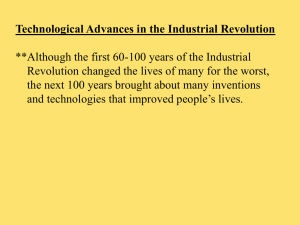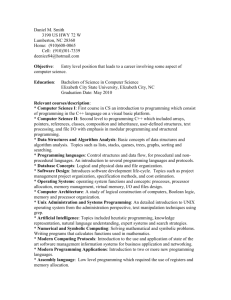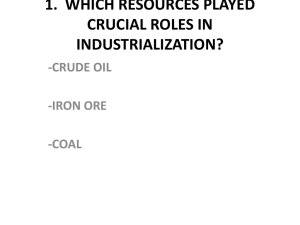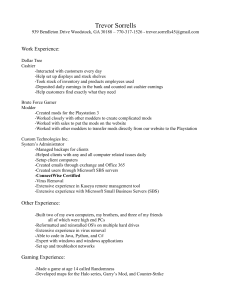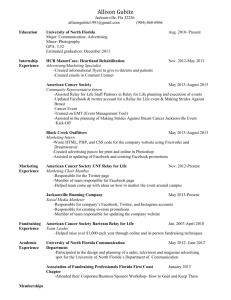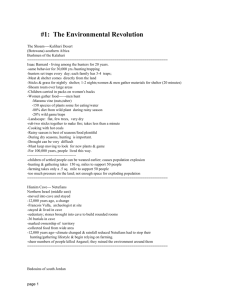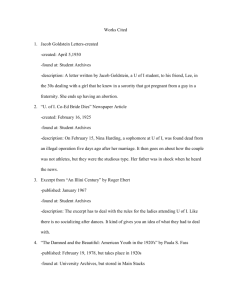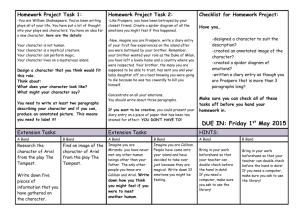File
advertisement
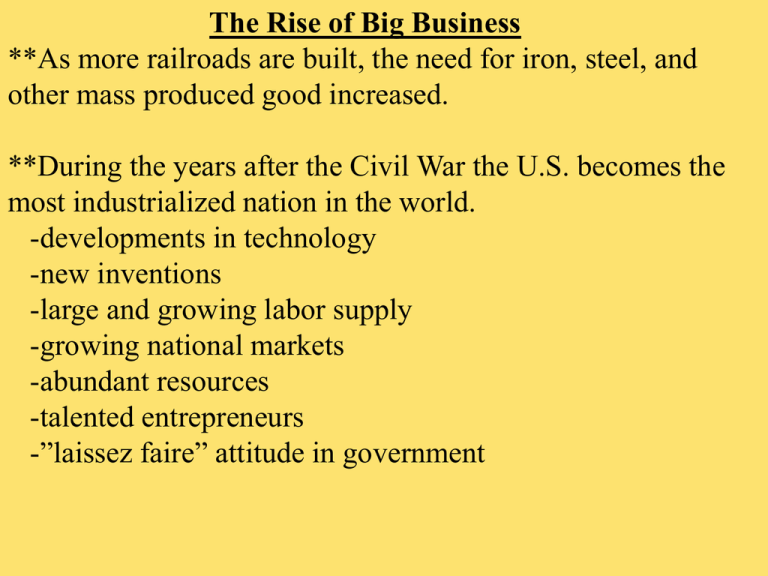
The Rise of Big Business **As more railroads are built, the need for iron, steel, and other mass produced good increased. **During the years after the Civil War the U.S. becomes the most industrialized nation in the world. -developments in technology -new inventions -large and growing labor supply -growing national markets -abundant resources -talented entrepreneurs -”laissez faire” attitude in government George Westinghouse -Alternate current (AC) which enabled electricity to be carried farther distances and be increased or decreased in voltage. -Compressed Air Shock Absorber -Air Brake -Natural Gas Reduction Valve -created Westinghouse Electric Co. -created other products such as the electric locomotive and electric cook stove. Alexander Graham Bell -teacher of the deaf -invented the telephone -wireless phone which carried sounds on a beam of light (precursor to fiber-optic communications) -metal detector -Created the American Telegraph and Telephone Co. (AT&T) -experimented with aircrafts and aeronautics Milton S. Hershey -making milk chocolate for the masses -Lancaster Caramel Co. -developed his own recipe for milk chocolate that was affordable. -built world’s largest chocolate company in Hershey, Pennsylvania. George Pullman -created the sleeper car -made 1st class train travel more comfortable -Pullman Palace Car Co. -Built Pullman, Illinois- -a town for the workers of the Pullman Co. E.I. DuPont -French immigrant -started milling gun powder in 1802 -company later branched into nitroglycerin and dynamite -accused of having a monopoly in explosives industry -branched into laquers, chemicals, teflon, lucite, lycra, kevlar Armour Brothers -Armour Co. -Chicago, Illinois -all products made from animals and animal by-products -meat, glue, fertilizers, hairbrushes, oleomargarine -known for low wages and dangerous working conditions Gustavus Franklin Swift -Swift and Co. -meatpacking in the Midwest (Chicago, IL) -created the 1st practical refrigerated railcar -”everything but the squeal!” -glue, soap, hairbrushes, buttons, fertilizers, oleomargarine, knife handles, medical products John D. Rockefeller -Created the Standard Oil Co. -Controlled all aspects of oil industry through Trusts (monopolies) -Created the Horizontal combination -Controlled 95% of all oil production in the U.S. . -Richest man in America during his time **Rockefeller was known for philanthropy. He financed many foundations that had an effect of medicine, education, and scientific research. He is given credit for eradicating Hookworm and Yellow Fever through one of his foundations. Sherman Antitrust Act -1890 -Created to break up powerful monopolies that restrained trade and competition -weak -large corporations found loopholes in the law to help them. -was used against labor unions even though that was not the original intention Andrew Carnegie -Scottish immigrant -started Carnegie Steel Co. which later became U.S. Steel -started the Vertical Combination -used Bessemer process for making steel cheaply -wrote The Gospel of Wealth -Unequal distribution of wealth is good -Rich should contribute to society to help poor -real example of “rags to riches” -philanthropist The Vanderbilts Cornelius Vanderbilt -fortune in steam ships -bought railroads -philanthropy included Vanderbilt University in Nashville William Vanderbilt -”The public be damned!” -Doubled the family’s fortune in the R.R. industry
